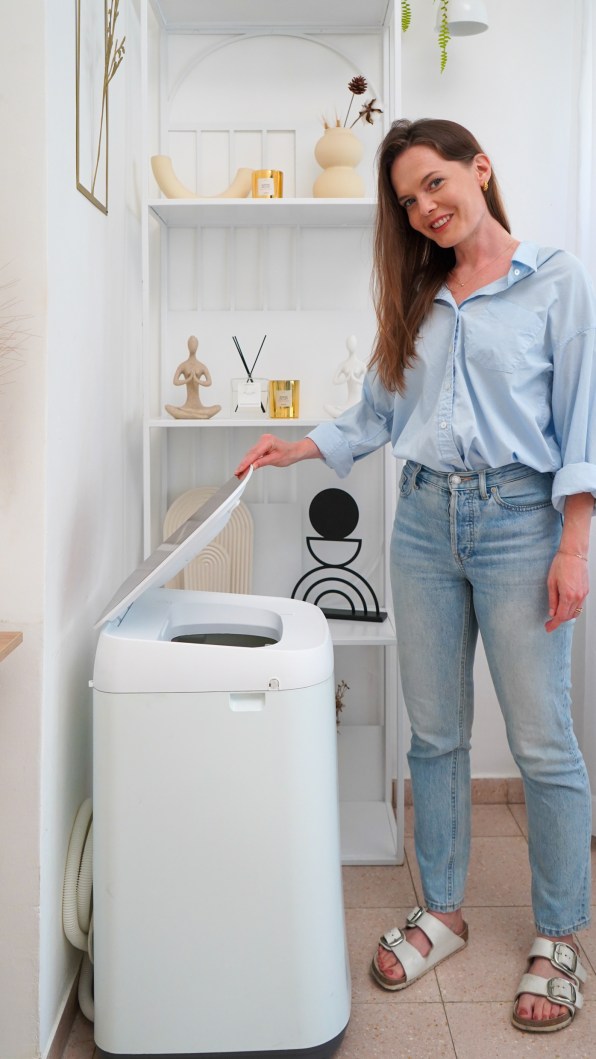Babies use 6,500 disposable diapers before they’re potty trained, and cloth diapers are labor intensive to clean. Pika hopes to eliminate both that waste, and all that work.

After his daughter was born, Alon Cohen couldn’t stop thinking about the number of diapers the family was sending to landfill. In the past, he and his wife had taken out the trash once a week; now it was every other day. “I started digging into the numbers, and it was overwhelming for me to find out that each baby is using around 6,500 disposable diapers,” he says. One baby’s diapers, cumulatively, create nearly 1.5 tons of plastic waste.

The family started experimenting with cloth diapers but found them challenging (and somewhat gross) to use. The process involves scraping poop into the toilet, storing 20 or more dirty, stinky diapers, and then a messy wash in the laundry machine. “It took us a lot of time every day to deal with cleaning them,” he says. “As new parents, everything is new, and time is very limited. All you want is to allocate time to be with your new baby.”
Cohen, who lives in Israel, decided to design an alternative. His startup, Pika, now makes a system that’s intended to make cleaning reusable diapers as easy as throwing out the disposable version. A small pod, like a miniature washing machine, hooks up to water and a drain. Parents throw the used diapers inside—without any pre-cleaning—and then use custom cleaning tablets from Pika that can dissolve feces and urine, unlike standard detergent. The design of the machine itself also helps clean the diapers. “We conducted lab tests showing that the diapers come out completely clean and sanitized,” Cohen says.
The company calculates that using the system can cut energy use by 96%, compared to disposable diapers, and reduce waste by nearly 99%.
The first group of customers is using the diapers now in Israel, and the startup plans to soon launch a pilot in the Bay Area. It plans to sell a subscription model that includes the machine and 30 cleaning tablets—each of which can clean a load of 10 diapers—for $99 a month, with diapers sold separately. Though Pika sells its own diapers, any type of cloth diaper can be used. (The number of diapers babies use per month varies, but the plan is supposed to cover a month’s average use.)
The current cost in Israel is a little higher than disposable diapers, says Mor Sidi, one mother who has been testing the service, but it has some advantages beyond the environmental benefit. “You have to go to the store to buy [disposables], make sure they don’t run out,” she says. “With Pika, you don’t run out.” When the baby is later potty trained, the machine goes back to the company, which wants to make sure that the equipment isn’t thrown away.

The company plans to install its machines in daycares, so babies can keep using cloth diapers while they’re away from home, and is also working on the design of a biodegradable bag in which to carry used diapers in other situations. Ultimately, Cohen is convinced that it could be possible to eliminate disposable diapers.
“Parents [used] cloth diapers for many years before disposables came to the market in the ’50s and became the main diaper product,” he says. “I believe that cloth diapers can become the common choice for every parent when parents are provided a more convenient way to use cloth diapers that are more sustainable, as easy to use as disposables, and more affordable. It is a much better option for our babies and our planet.”
